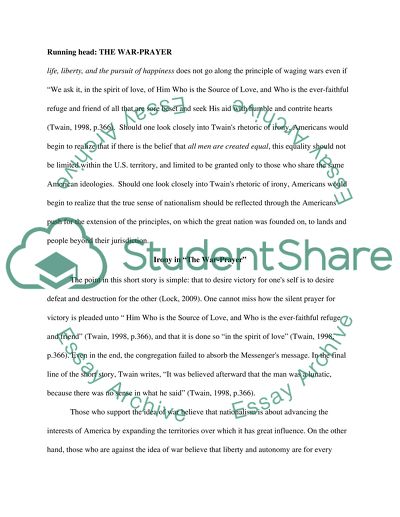Cite this document
(“Mark Twain's The War-Prayer Essay Example | Topics and Well Written Essays - 2000 words”, n.d.)
Retrieved from https://studentshare.org/literature/1449869-mark-twains-the-war-prayer
Retrieved from https://studentshare.org/literature/1449869-mark-twains-the-war-prayer
(Mark Twain'S The War-Prayer Essay Example | Topics and Well Written Essays - 2000 Words)
https://studentshare.org/literature/1449869-mark-twains-the-war-prayer.
https://studentshare.org/literature/1449869-mark-twains-the-war-prayer.
“Mark Twain'S The War-Prayer Essay Example | Topics and Well Written Essays - 2000 Words”, n.d. https://studentshare.org/literature/1449869-mark-twains-the-war-prayer.


